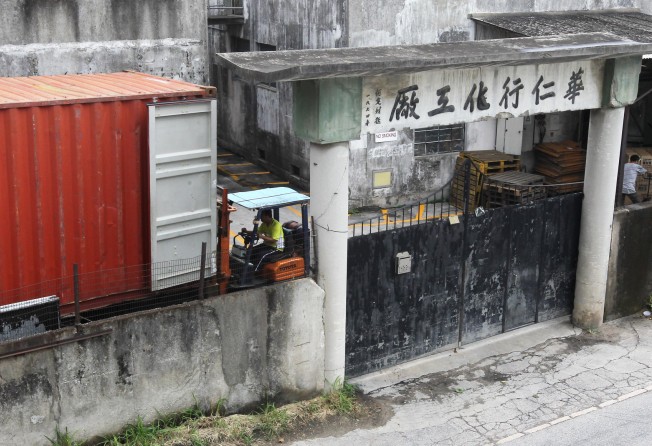
Ho family: we're a victim of new-town plans

The latest family embroiled in a land row in the northeastern New Territories is a victim, instead of a beneficiary, of new-town development although it owns land in the area, one of its members says.
The family of Henry Ho Kin-chung, erstwhile political assistant to Secretary for Development Paul Chan Mo-po, holds four lots of land along Ho Sheung Heung Road in Kwu Tung.

Henry Ho resigned yesterday after his family's interests caught public attention.
His uncle Ho Mun-jing was critical of suggestions that the family would benefit from the official development of Kwu Tung.
Rather, the government's compensation - estimated to be HK$20 million - would hardly be enough for the family to rebuild a factory they established in the area in the 1970s, he said.
"We bought the land and built the factory several decades ago," he said. "Compensation of HK$20 million would not allow us to rebuild the factory elsewhere. We are the biggest loser [in the new-town development]."
The Ho family owns the land through its private company, Wah Yan Hong Chemical Factory. The pesticides production plant occupies part of the site and remains operational today.
Ho Mun-jing and his younger brother, Michael Ho Man-sum - Henry Ho's father - used to own Wah Yan Hong. Michael Ho was diagnosed with cancer in 2006 and, together with his brother, transferred most of the shares to their children. Henry Ho got 48 per cent, while two of his cousins each had 25 per cent. Michael Ho and Ho Mun-jing each retained a 1 per cent share.
In November, Henry Ho made preparations to assume the role of political assistant the following month. In order to separate his interests from his family's, he transferred all the shares owned by him and his father, who died last year, to his mother Amy Ho Leung Lai-ling, he said.
Henry Ho never visited the factory, even after he became a shareholder, the uncle said.
While the Ho family has kept a low profile over the years, the products they created and their adverts are among the city's most memorable.
In a classic ad, a ninja tries to fight cockroaches with a sword. He is told not to use the sword but the pesticide Swirl-Wind.
In another ad, a cabbie almost crashes his taxi because his feet are itchy. His passenger snaps at him, telling him to treat his athlete's foot using a spray, Afakin.
Both ads ran on television for several decades, but stopped in recent years, Ho Mun-jing said. The factory also stopped producing the spray, but occasionally receives orders for "Indian magic oil" - long rumoured to be an aphrodisiac for men.
Kwu Tung dwellers said the plant employed more than 10 workers. Every two days, a container truck would arrive, collecting finished goods, mainly pesticides and lighters, they said.